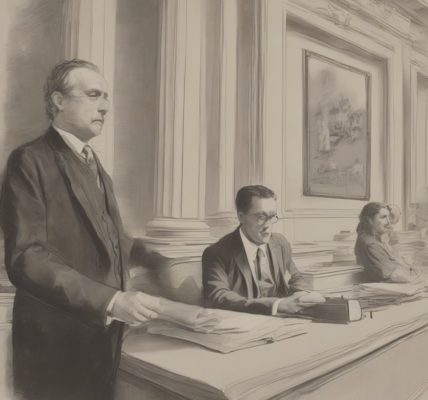Verizon and Law Enforcement: A Complex Relationship of Data Sharing, Surveillance, and Privacy Concerns
Verizon and Law Enforcement: A Complex Relationship of Data Sharing, Surveillance, and Privacy Concerns
The relationship between Verizon, one of the largest telecommunications companies in the United States, and law enforcement agencies is a multifaceted one, characterized by significant data sharing, legal frameworks governing access, and ongoing debates surrounding privacy rights. Understanding this relationship requires examining the legal mechanisms enabling data access, the types of data shared, the implications for individual privacy, and the ongoing efforts to balance national security concerns with the protection of civil liberties.
Legal Frameworks Governing Data Access
Law enforcement’s access to Verizon’s data is primarily governed by established legal procedures, including warrants, subpoenas, and national security letters (NSLs). These legal instruments define the scope of permissible data requests and the processes for obtaining them. Warrants, issued by judges based on probable cause, provide the highest level of judicial oversight and are generally required for the most intrusive types of data requests, such as the content of communications. Subpoenas, on the other hand, require a lower standard of proof and may be used to obtain less sensitive information, like subscriber information.
- Warrants: The most stringent legal mechanism, requiring probable cause and judicial approval.
- Subpoenas: A less stringent legal mechanism, requiring a lower standard of proof and often used to obtain subscriber information.
- National Security Letters (NSLs): Issued by the FBI in national security investigations, these letters typically prohibit the recipient (Verizon in this case) from disclosing the existence of the letter itself. This lack of transparency has been a source of significant controversy.
- Emergency Requests: In exigent circumstances, such as situations involving imminent danger, law enforcement may request immediate access to data without prior judicial authorization. However, these requests are usually subject to later judicial review.
- CALEA Compliance: The Communications Assistance for Law Enforcement Act (CALEA) requires telecommunications providers like Verizon to build and maintain systems enabling law enforcement to intercept communications.
Types of Data Shared
The types of data shared between Verizon and law enforcement agencies vary significantly depending on the legal mechanism used and the nature of the investigation. This data can range from basic subscriber information, such as name and address, to the content of communications, including phone calls, text messages, and emails. Metadata, which includes information about communications like the time, duration, and location of calls, is often requested and readily provided, even without a warrant in some circumstances.
- Subscriber Information: Basic identifying information, including name, address, phone number, and account details.
- Call Detail Records (CDRs): Metadata associated with phone calls, including the time, duration, and numbers involved.
- Text Message and Email Content: The actual content of text messages and emails, typically requiring a warrant.
- Location Data: Information about the location of a device, often obtained through cell tower triangulation or GPS data. This data raises significant privacy concerns.
- Internet Protocol (IP) Address Information: The IP addresses associated with internet activity, which can be used to identify users and track online activity.
Privacy Implications and Concerns
The sharing of data between Verizon and law enforcement raises significant privacy concerns. The vast amount of data collected by telecommunication companies, coupled with the increasing capabilities of law enforcement agencies to access and analyze this data, creates the potential for widespread surveillance and erosion of individual privacy. The lack of transparency surrounding the use of NSLs and the potential for overreach by law enforcement are key aspects of these concerns.
- Mass Surveillance Concerns: The potential for law enforcement to access vast amounts of data without specific warrants raises concerns about mass surveillance and the chilling effect on free speech and association.
- Data Security and Breaches: The security of data held by telecommunication companies is crucial. Breaches can expose sensitive personal information, potentially leading to identity theft and other harms.
- Lack of Transparency: The use of NSLs, with their gag orders preventing disclosure, creates a lack of transparency and accountability in law enforcement’s data collection practices.
- Fourth Amendment Implications: The collection and use of data by law enforcement must comply with the Fourth Amendment’s protection against unreasonable searches and seizures.
- Profiling and Discrimination: The potential for data analysis to lead to discriminatory profiling based on race, religion, or other factors is a serious concern.
Balancing National Security and Civil Liberties
The relationship between Verizon and law enforcement necessitates a delicate balancing act between national security and civil liberties. While law enforcement agencies require access to data to investigate crimes and protect national security, this access must be carefully regulated to prevent abuses and protect individual privacy rights. This requires robust legal frameworks, transparent procedures, and effective oversight mechanisms.
- Judicial Oversight: Strengthening judicial oversight of data requests, particularly those involving sensitive information, is essential to ensure compliance with legal standards and protect privacy rights.
- Transparency and Accountability: Increasing transparency surrounding law enforcement’s data collection practices, including regular reporting on the use of NSLs and other legal mechanisms, is crucial for accountability.
- Data Minimization: Law enforcement agencies should only collect and retain the minimum amount of data necessary to achieve their investigative goals, minimizing the impact on individual privacy.
- Stronger Privacy Protections: Consideration of stronger privacy protections in legislation and regulations, possibly including limitations on the types of data that can be collected and retained without a warrant.
- Ongoing Dialogue and Debate: Continued public discussion and debate are vital to ensure that the balance between national security and civil liberties is appropriately struck.
The Role of Verizon
Verizon, as a telecommunications provider, plays a critical role in this relationship. It is bound by law to cooperate with legitimate law enforcement requests, but it also has a responsibility to protect the privacy of its customers. This requires a commitment to robust data security measures, compliance with legal procedures, and transparency about its data sharing practices. Moreover, Verizon has a responsibility to advocate for policies and regulations that balance the needs of law enforcement with the protection of individual privacy.
- Data Security: Implementing and maintaining robust security measures to protect customer data from unauthorized access and breaches.
- Legal Compliance: Ensuring strict adherence to all applicable laws and regulations regarding data sharing with law enforcement.
- Transparency and Reporting: Providing regular reports on data requests received from law enforcement, including the number and types of requests and the data provided.
- Advocacy for Privacy: Supporting policies and regulations that protect customer privacy while enabling effective law enforcement.
- Customer Education: Educating customers about their privacy rights and the company’s data sharing practices.
Ongoing Challenges and Future Directions
The relationship between Verizon and law enforcement remains a dynamic and evolving landscape. The increasing reliance on digital technologies, coupled with advancements in data analytics and surveillance capabilities, continues to raise new challenges and ethical considerations. Addressing these challenges requires ongoing dialogue, collaboration among stakeholders, and a commitment to upholding both national security and civil liberties.
- Technological Advancements: The development of new technologies, such as facial recognition and artificial intelligence, presents new challenges to privacy and requires careful consideration of their potential impact.
- Data Breaches and Security: The need for enhanced data security measures to prevent breaches and protect sensitive customer information remains paramount.
- Legislative and Regulatory Reform: Ongoing review and potential reform of existing laws and regulations to ensure they adequately address the challenges posed by modern technology and surveillance capabilities.
- International Cooperation: Collaboration with international partners to address cross-border data sharing and surveillance issues.
- Public Awareness and Education: Raising public awareness about privacy rights and the implications of data sharing between telecommunication companies and law enforcement.




